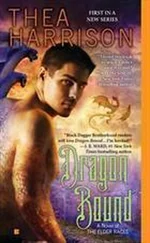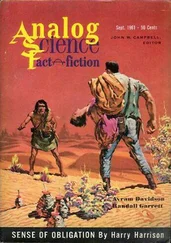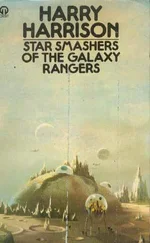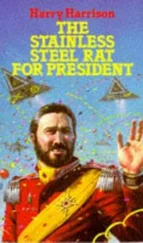M Harrison - Viriconium
Здесь есть возможность читать онлайн «M Harrison - Viriconium» весь текст электронной книги совершенно бесплатно (целиком полную версию без сокращений). В некоторых случаях можно слушать аудио, скачать через торрент в формате fb2 и присутствует краткое содержание. Жанр: Фэнтези, на английском языке. Описание произведения, (предисловие) а так же отзывы посетителей доступны на портале библиотеки ЛибКат.
- Название:Viriconium
- Автор:
- Жанр:
- Год:неизвестен
- ISBN:нет данных
- Рейтинг книги:3 / 5. Голосов: 1
-
Избранное:Добавить в избранное
- Отзывы:
-
Ваша оценка:
- 60
- 1
- 2
- 3
- 4
- 5
Viriconium: краткое содержание, описание и аннотация
Предлагаем к чтению аннотацию, описание, краткое содержание или предисловие (зависит от того, что написал сам автор книги «Viriconium»). Если вы не нашли необходимую информацию о книге — напишите в комментариях, мы постараемся отыскать её.
Viriconium — читать онлайн бесплатно полную книгу (весь текст) целиком
Ниже представлен текст книги, разбитый по страницам. Система сохранения места последней прочитанной страницы, позволяет с удобством читать онлайн бесплатно книгу «Viriconium», без необходимости каждый раз заново искать на чём Вы остановились. Поставьте закладку, и сможете в любой момент перейти на страницу, на которой закончили чтение.
Интервал:
Закладка:
Crome shivered.
“Whatever is in the Aqualate Pond,” Ingo Lympany the dramatist had once told him, “it’s not water.”
On the shore in front of a terrace of small shabby houses he had already found a kind of gibbet made of two great arched, bleached bones. From it swung a corpse whose sex he couldn’t determine, upright in a tight wicker basket which creaked in the wind. The pond lay as still as Lympany had predicted, and it smelled of lead.
“Again, you see, everyone agrees it’s a small pool, a very small one. But when you are standing by it, on the Henrietta Street side, you would swear that it stretched right off to the horizon. The winds there seem to have come such a distance. Because of this the people in Henrietta Street believe they are living by an ocean, and make all the observances fishermen make. For instance, they say that a man can only die when the pool is ebbing. His bed must be oriented the same way as the floorboards, and at the moment of death doors and windows should be opened, mirrors covered with a clean white cloth, and all fires extinguished. And so on.”
They believed, too, at least the older ones did, that huge fish had once lived there.
“There are no tides of course, and fish of any kind are rarely found there now. All the same, in Henrietta Street once a year they bring out a large stuffed pike, freshly varnished and with a bouquet of thistles in its mouth, and walk up and down the causeway with it, singing and shouting.
“And then-it’s so hard to explain!- echoes go out over that stuff in the pool whenever you move, especially in the evening when the city is quiet: echoes and echoes of echoes, as though it were contained in some huge vacant metal building. But when you look up there is only the sky.”
“Well, Lympany,” said Crome aloud to himself. “You were right.”
He yawned. Whistling thinly and flapping his arms against his sides to keep warm, he paced to and fro underneath the gibbet. When he stood on the meagre strip of pebbles at its edge, a chill seemed to seep out of the pool and into his bones. Behind him Henrietta Street stretched away, lugubrious and potholed. He promised himself, as he had done several times that night, that if he turned round, and looked down it, and still saw no one, he would go home. Afterwards he could never quite describe to himself what he had seen.
Fireworks flickered a moment in the dark, like the tremulous reflections made by a bath of water on the walls and ceilings of an empty room, and were gone. While they lasted, Henrietta Street was all boarded-up windows and bluish shadows. He had the impression that as he turned it had just been vacated by a number of energetic figures-quiet, agile men who dodged into dark corners or flung themselves over the rotting fences and iron railings, or simply ran off very fast down the middle of the road preciselyso that he shouldn’t see them. At the same time he saw, or thought he saw, one real figure do all these things, as if it had been left behind by the rest, staring white-faced over its shoulder at him in total silence as it sprinted erratically from one feeble refuge to another, and then vanishing abruptly between some houses.
Overlaid, as it were, on both this action and the potential or completed action it suggested, was a woman in a brown cloak. At first she was tiny and distant, trudging up Henrietta Street towards him; then, without any transitional state at all, she had appeared in the middle ground, posed like a piece of statuary between the puddles, white and naked with one arm held up (behind her it was possible to glimpse for an instant three other women, but not to see what they were doing-except that they seemed to be plaiting flowers); finally, with appalling suddenness, she filled his whole field of vision, as if on the Unter-Main-Kai a passerby had leapt in front of him without warning and screamed in his face. He gave a violent start and jumped backwards so quickly that he fell over. By the time he was able to get up the sky was dark again, Henrietta Street empty, everything as it had been.
The woman, though, awaited him silently in the shadows beneath the gibbet, wrapped in her cloak like a sculpture wrapped in brown paper, and wearing over her head a complicated mask made of wafery metal to represent the head of one or another wasteland insect. Crome found that he had bitten his tongue. He approached her cautiously, holding out in front of him at arm’s length the paper Verdigris had given him.
“Did you send me this?” he said.
“Yes.”
“Do I know you?”
“No.”
“What must I do to stop these dreams?”
She laughed. Echoes fled away over the Aqualate Pond.
“Kill the Mammy,” she said.
Crome looked at her.
“You must be mad,” he said. “Whoever you are.”
“Wait,” she recommended him, “and we’ll see who’s mad.”
She lowered the corpse in its wicker cage-the chains and pulleys of the gibbet gave a rusty creak-and pulled it towards her by its feet. Momentarily it escaped her and danced in a circle, coy and sad. She recaptured it with a murmur. “Hush now. Hush.” Crome backed away. “Look,” he whispered, “I-” Before he could say anything else, she had slipped her hand deftly between the osiers and, like a woman gutting fish on a cold Wednesday morning at Lowth, opened the corpse from diaphragm to groin. “Man or woman?” she asked him, up to her elbows in it. “Which would you say?” A filthy smell filled the air and then dissipated. “I don’t want-” said Crome. But she had already turned back to him and was offering him her hands, cupped, in a way that gave him no option but to see what she had found-or made-for him.
“Look!”
A dumb, doughy shape writhed and fought against itself on her palms, swelling quickly from the size of a dried pea to that of a newly born dog. It was, he saw, contained by vague and curious lights which came and went; then by a cream-coloured fog which was perhaps only a blurring of its own spatial limits; and at last by a damp membrane, pink and grey, which it burst suddenly by butting and lunging. It was the lamb he had seen in his dreams, shivering and bleating and tottering in its struggle to stand, the eyes fixed on him forever in its complaisant, bone-white face. It seemed already to be sickening in the cold leaden breath of the pond.
“Kill the Mammy,” said the woman with the insect’s head, “and in a few days’ time you will be free. I will bring you a weapon soon.”
“All right,” said Crome.
He turned and ran.
He heard the lamb bleating after him the length of Henrietta Street, and behind that the sound of the sea, rolling and grinding the great stones in the tide.
For some days this image preoccupied him. The lamb made its way without fuss into his waking life. Wherever he looked he thought he saw it looking back at him: from an upper window in the Artists’ Quarter, or framed by the dusty iron railings which line the streets there, or from between the chestnut trees in an empty park.
Isolated in a way he had not been since he first arrived in Uroconium wearing his green plush country waistcoat and yellow pointed shoes, he decided to tell no one what had happened by the Aqualate Pond. Then he thought he would tell Ansel Verdigris and Ingo Lympany. But Lympany had gone to Cladich to escape his creditors-and Verdigris, who after eating the tablecloth was no longer welcomed at the Luitpold Cafe, had left the Quarter too: at the large old house in Delpine Square there was only his mother-a bit lonely in her bath chair, though still a striking woman with a great curved nose and a faint, heady smell of elder blossom-who said vaguely, “I’m sure I can remember what he said,” but in the end could not.
“I wonder if you know, Ardwick Crome, how I worry about his bowels, ” she went on. “As his friend you must worry, too, for they are very lazy, and he will not encourage them if we do not!”
Читать дальшеИнтервал:
Закладка:
Похожие книги на «Viriconium»
Представляем Вашему вниманию похожие книги на «Viriconium» списком для выбора. Мы отобрали схожую по названию и смыслу литературу в надежде предоставить читателям больше вариантов отыскать новые, интересные, ещё непрочитанные произведения.
Обсуждение, отзывы о книге «Viriconium» и просто собственные мнения читателей. Оставьте ваши комментарии, напишите, что Вы думаете о произведении, его смысле или главных героях. Укажите что конкретно понравилось, а что нет, и почему Вы так считаете.











